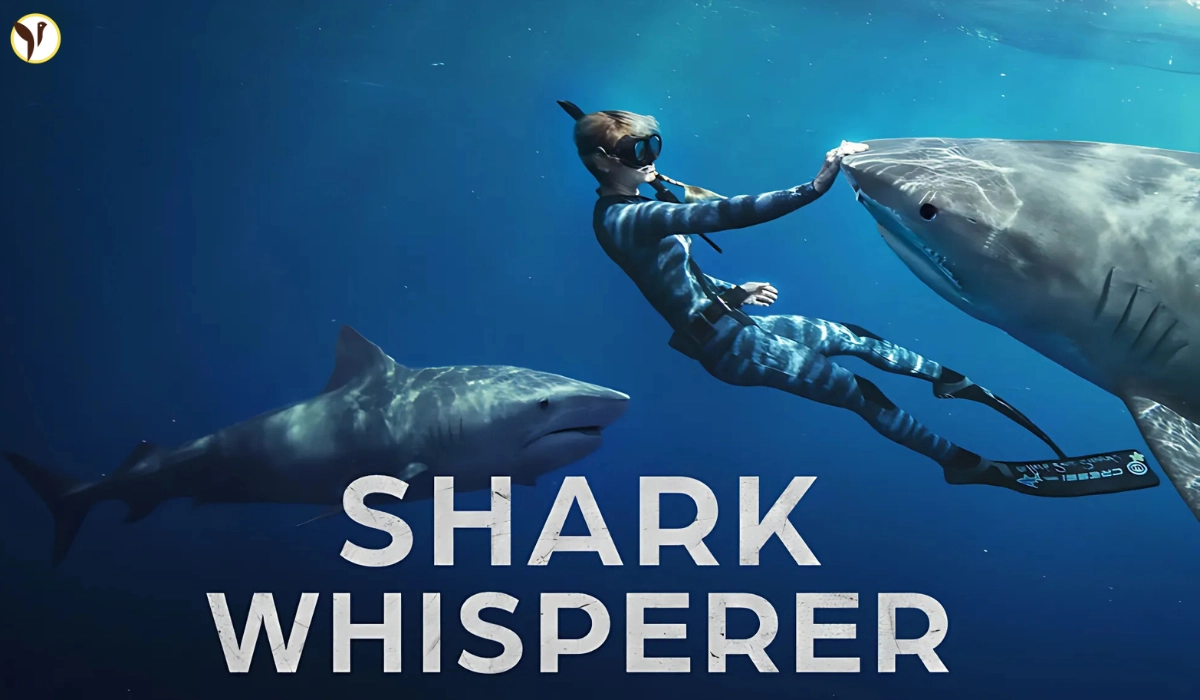Marine biologist Ocean Ramsey is making waves again—this time for Netflix. The documentary Shark Whisperer, which was released on June 30, 2025, follows Ramsey as she cage dives with some of the largest sharks in the world, including great whites. The encounters are all about taking the fear out of these sharks and inspiring ocean conservation efforts. Nonetheless, not everyone is happy about it.
Directed by James Reed (My Octopus Teacher), Shark Whisperer showcases a behind-the-scenes glimpse of Ramsey’s risky job. Ramsey said putting her hand on the nose of a shark and trying to be in contact with them through their electroreceptors was one of the most crazy and emotional moments of her life.
She hopes that with footage like this, viewers will perceive sharks differently—not as killers, but as intelligent, misunderstood animals. The documentary also shows her wealth of different initiatives to help protect marine ecosystems, including educational programs, cleanup campaigns, and efforts to lobby for shark protection legislation in Hawaii.
But the publicity her work is receiving is not all positive. Many marine researchers are concerned that her cage-free swims, and especially her live-streaming these type of activities around the world, may promote dangerous behavior and support the wrong attitudes toward human interactions with sharks.

Experts caution against mixed messaging from viral shark interactions
While Shark Whisperer is attempting to raise awareness around conservation, a number of scientist voiced caution regarding the nature of the program in terms of portraying shark behaviors and human interactions. Dr. David Shiffman is a marine biologist that is also questioning the ramifications of Ramsey's efforts, particularly socially. Dr. Shiffman explained that "dramatic footage of people swimming with sharks could inspire unsafe and scientifically dubious copy-cat behavior".
Michael Domeier, a leading great white researcher, shares these concerns. He thinks interacting so closely with public tourists is dangerous because it misinforms the public about sharks and minimizes the risk to humans that sharks can pose in certain circumstances. Similarly, these detractors feel that while the filming is a very powerful visual experience, it does blur the line between education and entertainment.
Ramsey also defends her work, arguing that she actually accomplishes the goal of helping people connect emotionally with sharks so they 'care more' about protecting them. She emphasizes that sharks are on the nipple of an extinction crisis, with an estimated 100 million sharks killed by humans annually—almost exclusively due to fishing and habitat loss. Therefore, you have roughly 100 million instances of interactions or encounters between humans and sharks, with 10-12 shark bites in North America annually.
The documentary does not shy away from the drama. It captures participants' views from both sides, hopefully painting a more complete picture of the controversy over Ramsey's approaches, and gives viewers a lens into her private life: the emotional price of her work, and how she intentionally navigates her work in the public eye while carrying a genuine sense of responsibility for the ocean

Shark Whisperer gives an honest perspective—while sometimes divisive—into one of the ocean's most misunderstood animals, and the people who risk a lot to save them. Whether you view Ramsey as a badass advocate or someone who pushes the boundaries of risk, the film signifies important conversations about how we approach wildlife conservation in the age of social media.
Source(Image / Thumbnail): tvinsider.com & telegraph.co.uk









